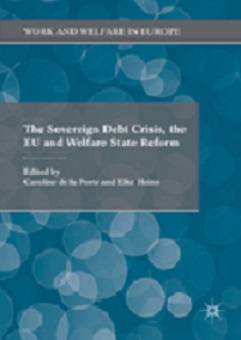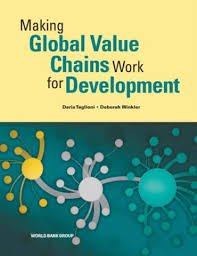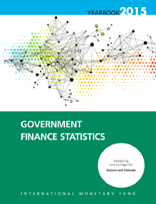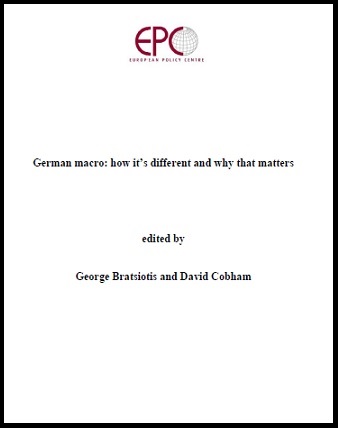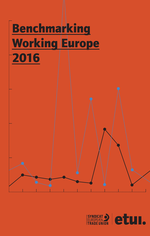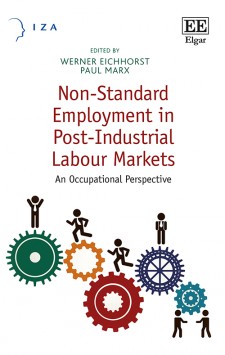Jones, Erik, Torres, Francisco, (2016), “Governance of the European Monetary Union: Recasting Political, Fiscal and Financial Integration”, Routledge, 7 June The crisis in the euro area is a defining moment in the history of European integration. It has revealed major flaws in the architecture of the European Union; it has challenged European institutions to shape an appropriate response; and it has tested the patience of a European public that is eager to …Read More
The Sovereign Debt Crisis, the EU and Welfare State Reform
De La Porte, Caroline, Heins, Elke, (2016), “The Sovereign Debt Crisis, the EU and Welfare State Reform”, Palgrave Macmillan UK This book offers a much-needed analysis of how the European Union (EU) has affected welfare state reforms in the Member States most severely hit by the 2008 economic crisis. Bringing together leading European social policy researchers, it shows that the EU’s responses to the sovereign debt crisis have changed the nature of EU …Read More
Making Global Value Chains Work for Development
Taglioni, Daria, Winkler, Deborah, (2016) “Making Global Value Chains Work for Development”, World Bank, June Economic, technological, and political shifts as well as changing business strategies have driven firms to unbundle production processes and disperse them across countries. Thanks to these changes, developing countries can now increase their participation in global value chains (GVCs) and thus become more competitive in agriculture, manufacturing and services. This is a paradigm shift from the …Read More
Government Finance Statistics Yearbook 2015
International Monetary Fund, (2016), “Government Finance Statistics Yearbook 2015”, IMF, June This annual publication provides detailed data on transactions in revenue, expense, net acquisition of assets and liabilities, other economic flows, and balances of assets and liabilities of general government and its subsectors. The data are compiled according to the framework of the 2014 Government Finance Statistics Manual, which provides for several summary measures of government fiscal performance. Relevant …Read More
German macro: how it’s different and why that matters
Bratsiotis, George, Cobham, David, (2016), “German macro: how it’s different and why that matters”, European Policy Centre, 29 Αpril Do the macroeconomics of the German political establishment really differ from standard western macroeconomics? That question was the starting point for the seminar on ‘German macro: How it’s Different and Why that Matters’, which was held at Heriot-Watt University in December 2015, with financial support from the Scottish Institute for Research in Economics (SIRE) …Read More
Global Economic Prospects, June 2016 : Divergences and Risks
World Bank Group, (2016), “Global Economic Prospects, June 2016 : Divergences and Risks”, World Bank, June The World Bank is revising its 2016 global growth forecast down to 2.4 percent from the 2.9 percent pace projected in January. The move is due to sluggish growth in advanced economies, stubbornly low commodity prices, weak global trade, and diminishing capital flows. Commodity-exporting emerging market and developing economies have struggled to adapt to …Read More
Banks and the political economy of the sovereign debt crisis in italy and spain
Quaglia, Lucia, Royo, Sebastian, (2014), “Banks and the political economy of the sovereign debt crisis in Italy and Spain“, CES papers This paper sets out to explain why Spain experienced a full-fledged sovereign debt crisis and had to resort to euroarea financial assistance for its banks, whereas Italy did not. It undertakes a structured comparison, dissecting the sovereign debt crisis into a banking crisis and a balance of payments crisis. It …Read More
Eurozone crisis and social models: what we can learn from italy and spain
Perez, Sofia, (2014), “Eurozone crisis and social models: what we can learn from Italy and Spain”, Minda de Ginzburg Center for European Studies, Harvard University, Open Forum Working Papers #20, This paper considers the role of social model features in the economic performance of Italy and Spain during the run-up to the Eurozone crisis, as well as the consequences of that crisis, in turn, for the two countries social models. It …Read More
Benchmarking Working Europe 2016
European Trade Union Institute (ETUI), “Benchmarking Working Europe 2016″, ETUI aisbl: Brussels, March 2016 With this year’s chosen focus – ‘prepared for the future?’ – the new edition of Benchmarking working Europe analyses the state of working Europe with the aid of a multi-level and multi-dimensional set of indicators. This 2016 edition is intended as one contribution to an assessment of what the EU current policies have achieved, or above all …Read More
Non-Standard Employment in Post-Industrial Labour Markets-An Occupational Perspective
Eichhorst, Werner, Marx, Paul, (2015), “Non-Standard Employment in Post-Industrial Labour Markets-An Occupational Perspective”, IZA, Edward Elgar Publishing. Examining the occupational variation within non-standard employment, this book combines case studies and comparative writing to illustrate how and why alternative occupational employment patterns are formed. Non-standard employment has grown significantly in most developed economies, varying between countries. Different institutional settings have been deemed accountable for this variation, although inadequate consideration has been given to differences within national …Read More






